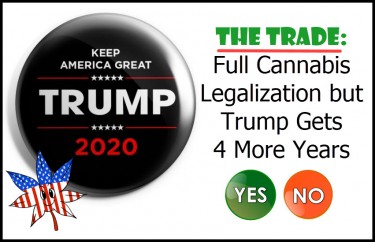Cannabis News
Direct and Ancillary CBD Liability Under the FD&C Act
Published
2 years agoon
By
admin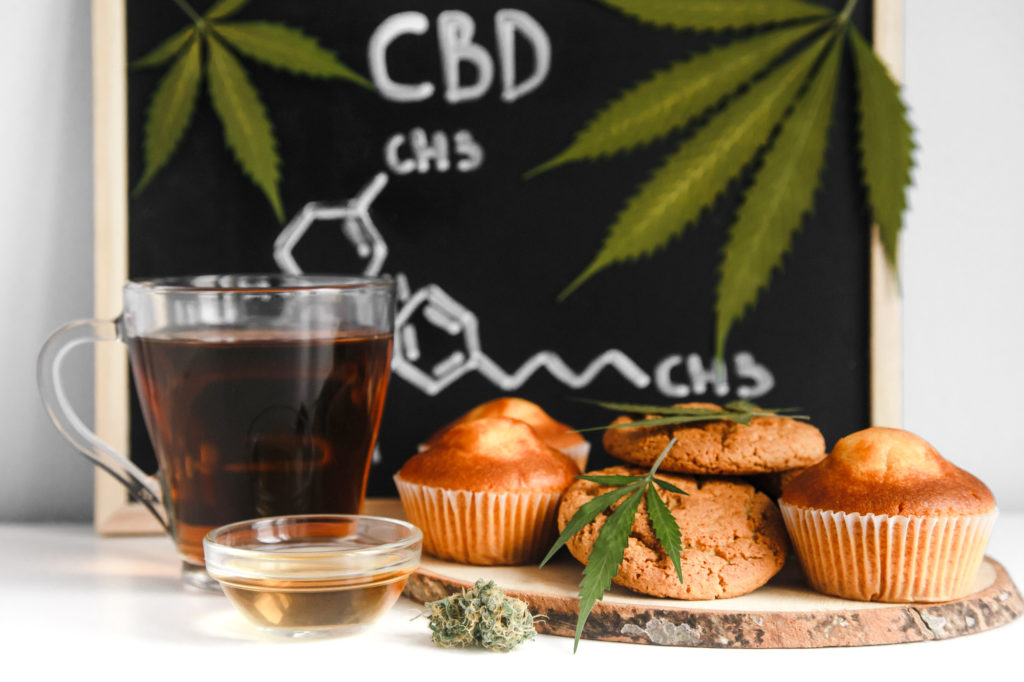
Not much thought is given to ancillary CBD liability. Why is that? Probably because the Food and Drug Administration (“FDA”) hasn’t taken any serious enforcement action against any company or individual that aids and abets violations of the Food, Drug & Cosmetic Act (the “Act”) when it comes to CBD. Still, secondary CBD liability under the Act isn’t pretty. And if you’re a company or individual that’s helping other companies or individuals make, sell, or distribute CBD products that violate the Act, you’re actually as guilty as they are under federal law.
FDA and CBD
For a while, CBD stakeholders truly believed that the FDA was prepared to regulate the robust CBD market in the U.S. That, however, will not come to pass where as of January 26, 2023, the FDA concluded that it will NOT regulate CBD foods or dietary supplements. The FDA is punting that task to Congress, which essentially means CBD laws and regulations will either never happen or they’re a far, far way off.
What all of that means is that the status quo remains intact: hemp-derived CBD is not an illegal controlled substance under U.S. law, but it also isn’t a supplement and it cannot be an ingredient in food and beverages for humans or pets without violating the Act. And marketing any bodily or curative effects of CBD was (and still is) off limits.
CBD liability for CBD retailers to date has taken the shape of enforcement letters from the FDA. See here for the most recent examples. Those letters get a massive shoulder shrug from the CBD industry on the whole. Especially since a multitude of states actually allow CBD to be added to food and beverages in conflict with the Act.
FDA and the enforcement spectrum
Many in the CBD industry may not be aware of the risk spectrum when it comes to CBD liability with the FDA. Per the FDA’s own guidance, this is how it tees up enforcement, generally:
- Warning Letters. These are sent to the individuals or firms, advising them of specific noted violations. These letters request a written response as to the steps which will be taken to correct the violation. These letters constitute one form of warning that can be issued under current Agency policy.
- Seizure of CBD products. An action brought against an FDA-regulated product because it is adulterated and/or misbranded within the meaning of the Act. The purpose of such an action is to remove specific violative goods from commerce.
- Injunction from CBD product sales. An order by a court that requires an individual or corporation to do or refrain from doing a specific act. FDA may seek injunctions against individuals and/or corporations to prevent them from violating or causing violations of the Act.
- Criminal prosecution of CBD seller. Criminal prosecution may be recommended in appropriate cases for violation of Section 301 of the Act (this specifically goes to selling or delivering into interstate commerce any food, drug, device, tobacco product, or cosmetic that is adulterated or misbranded, among other things). Misdemeanor convictions, which do not require proof of intent to violate the Act, can result in fines and/or imprisonment up to one year. Felony convictions, which apply in the case of a second violation or intent to defraud or mislead, can result in fines and/or imprisonment up to three years.
Then there are the criminal fines under the Act. Misdemeanor fines under the Act may reach $500,000 under some circumstances. The Criminal Fine Enforcement Act of 1984 (Public Law 98-596) provides for fines for violations of federal law. Although it is not part of the Act, the Criminal Fine Enforcement Act of 1994 applies to all fines levied under the Act, as well as other statutes that contain provisions enforced by FDA.
The following fines are applicable for each offense:
- Up to $100,000 for a misdemeanor by an individual that does not result in death.
- Up to $200,000 for a misdemeanor by a corporation that does not result in death.
- Up to $250,000 for a misdemeanor by an individual that results in death, or a felony.
- Up to $500,000 for a misdemeanor by a corporation that results in death, or a felony.
The maximum imprisonment for a misdemeanor under the Act remains a year for each offense.
FDA, CBD enforcement, and criminal CBD liability
In its warning letters to a variety of CBD companies, you’ll find the following directive from the FDA:
“Based on our review, these products are unapproved new drugs sold in violation of section 505(a) of the Federal Food, Drug, and Cosmetic Act (FD&C Act), 21 U.S.C. § 355(a). Furthermore, these products are misbranded drugs under section 502 of the FD&C Act, 21 U.S.C. § 352. The introduction or delivery for introduction of these products into interstate commerce is prohibited under sections 301(a) and (d) of the FD&C Act, 21 U.S.C. § 331(a) and (d).”
The typical translation is that because the CBD company is either marketing and/or selling its CBD products as supplements or “drugs” (due to medical, curative, bodily, disease or health claims about the products), it’s violating the Act and must cease the illegal conduct stat. In its letters, the FDA concludes that “failure to adequately correct any violations may result in legal action, including, without limitation, seizure and injunction.” The agency doesn’t mention any criminal liability and it is indeed rare, but it’s possible in certain cases; and criminal conduct under the Act carries a strict liability standard.
There’s a good reason why criminal prosecution under the Act is a bit of a novelty– affirmative defenses. Namely, if corporate officers of an offending company can show that they “exercised extraordinary care”, but weren’t otherwise able to prevent violations of the Act, the burden shifts to the Feds to prove beyond a reasonable doubt that the officer wasn’t in fact helpless to stop or remediate violations of the Act. And persons who in “good faith” merely receive and later deliver an illegal product cannot be subjected to criminal penalties under the Act. Finally, anyone who receives an illegal product in “good faith” and obtained a “written guaranty” that the product doesn’t violate the Act likewise cannot be prosecuted.
Ancillary CBD liability
There are many ancillary service providers propping up the CBD industry– distributors, financial institutions, payment processors, landlords, advertisers, etc. Under the Act, and per the FDA’s own interpretation:
“nearly everyone involved . . . in interstate commerce, such as manufacturers, packers, distributors, and retailers, is responsible for assuring that he or she is not dealing in products that are adulterated or misbranded, even if someone else caused the adulteration or misbranding in the first place. If you introduce it into interstate commerce or receive it in interstate commerce, you are responsible. The law applies to components and packaging as well as to finished products.”
In the case of United States v. Dotterweich, the U.S. Supreme Court found that:
a corporation may commit an offense and all persons who aid and abet its commission are equally guilty. Whether an accused shares responsibility in the business process resulting in unlawful distribution depends on the evidence produced at the trial and its submission–assuming the evidence warrants it–to the jury under appropriate guidance. The offense is committed, unless the enterprise which they are serving enjoys the immunity of a guaranty, by all who do have such a responsible share in the furtherance of the transaction which the statute outlaws, namely, to put into the stream of interstate commerce adulterated or misbranded drugs [emphasis added]. . . Balancing relative hardships, Congress has preferred to place it upon those who have at least the opportunity of informing themselves of the existence of conditions imposed for the protection of consumers before sharing in illicit commerce, rather than to throw the hazard on the innocent public who are wholly helpless.
Dotterweich addressed the criminal prosecution of Joseph H. Dotterweich, the president and general manager of The Buffalo Pharmacal Company, Inc., for the company’s violations of the Act by distributing and selling misbranded drugs. And what the case means, in part, is that any person (including a company as is included in the definition of “person” under the Act) can be criminally prosecuted for aiding and abetting violations of the Act namely depending on their “responsible share in furtherance of the transaction” that breaks the law, which will be revealed by evidence produced at trial for a jury to weigh.
Obviously, corporate officers of companies directly violating the Act have personal liability under the Act (including criminal) and the government can pierce the veil accordingly. This is well-established by case law. Does that liability and responsibility realistically extend to CBD ancillary companies that aid and abet violations of the Act? I think it could. In my opinion, it depends on how instrumental they are in getting these illegal CBD products into the hands of consumers (and maybe that’s why Google, for example, is now utilizing an extremely tight CBD advertising policy).
Considering ancillary CBD liability
No matter where you’re at in the chain of CBD manufacture, distribution, or sale, to mitigate your CBD liability, you need to make sure you’re only working with lawful actors (which, in reality, is a super small pool given the FDA’s position on CBD). And it won’t be a defense that state law otherwise allows all kinds of CBD products either, so you need to understand and know what a legal actor even is at this point, given the terrible state of the law. While CBD is obviously a massive growth area no matter what the FDA does or says, the FDA still has teeth to enforce Given the current political climate, everyone needs to be on their toes.
You may like
Cannabis News
The US Suddenly Has Two Pro-Marijuana Legalization Candidates, But Only One is Believable 60 Days Before the Election
Published
19 hours agoon
September 7, 2024By
admin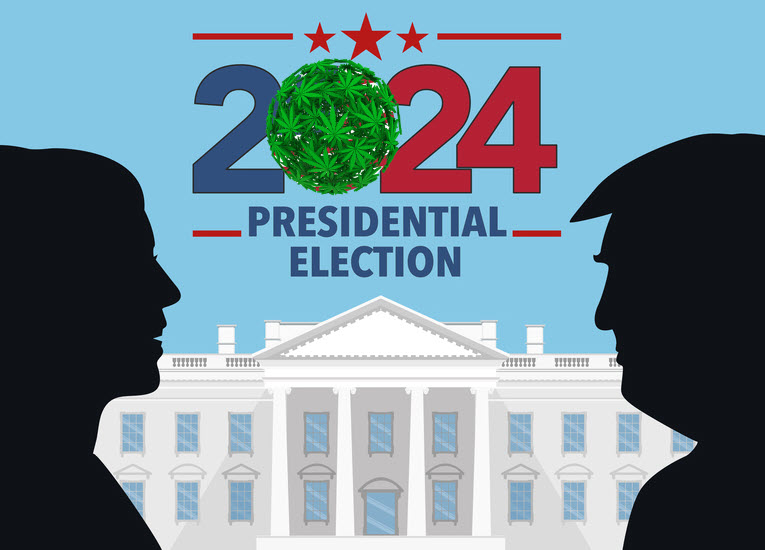
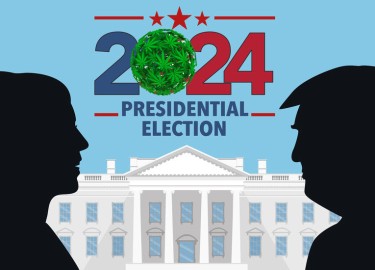
“Don’t Believe the Hype” – Public Enemy
In a surprising move, former President Donald Trump has publicly endorsed the legalization of cannabis, arguing that the criminalization of marijuana “ruins lives” and “wastes taxpayer dollars.” Speaking at a rally in Florida, Trump expressed confidence that voters will support a marijuana legalization initiative on the November ballot, stating, “I really believe it’s the right thing to do.”
Trump’s comments come at a time when public support for cannabis legalization is at an all-time high, with recent surveys indicating that approximately 78% of American adults favor legalization. The economic implications of this shift are significant, with the cannabis industry currently employing around 500,000 people and generating $29 billion in sales last year, a figure projected to rise to $37 billion by 2027.
The Harris camp immediately accussed the Trump camp of a “brazen flip-flop” on marijuana legalization just before the election in order ot try and lure swing voters. Based on Trump’s past presidency and his work with Attorney General Sessions during his first term, he is certainly no fan of marijuana, marijuana legalization, or was in any rush to support states that establisted legal, medical cannabis programs. As they say in life, “watch what someone does, not what they say 60 days before an election”, Trump had his chance as Commander-In-Chef and put the marijuana movement back 5 steps when he was in office.
This certainly smells fishy from the start based on his track record on drugs, alcohol, and marijuana legalization. Remember, he actually took steps in his Presidency to shut the marijuana movement down in America according to the New York Times.
Harris, on the other hand, claims to be for rescheduling cannabis and even legalizatio,n and a large clemency program. While she has been Vice-President for 4 years and legalization has not happened, her boss, President Biden, is no fan of drugs and has been on a founding memeber of the “War on Drugs” for over 40 years in office. So no, Harris has not “had her chance” the way Trump has had his chance as the actual President. As many know, the Vice-President’s roll in some instances is more for show and to take tours and visits the president does not have time or want to to do.
Harris has a “yet to be determined, yet things look good” on her marijuana legalization report card.
As MJBIZ covered in their artice on who would be better for marijuana reform going forward..
During a relatively quiet few years as vice president, Harris stumped for Biden’s generational advances in marijuana reform.
She was out front on the Biden administration’s pardons for former federal marijuana offenders as well as the October 2022 executive order that culminated in the Justice Department’s proposal this spring to move marijuana from Schedule 1 to Schedule 3 of the Controlled Substances Act.
“She’s actually gone further than (Biden),” said Bryan Barash, vice president of external affairs and deputy general counsel at Dutchie, an Oregon-based online cannabis sales platform.
“She’s said, ‘We can’t stop until there’s full legalization,’ which he has never said.”
In other words, Harris has the best record on marijuana reform of any major presidential candidate, including Biden.
Economic Implications of Legalization
The economic implications of cannabis legalization are substantial. The cannabis industry has rapidly evolved into a multi-billion dollar market, employing around 500,000 people and generating $29 billion in sales in the past year alone. Projections indicate that this figure could rise to $37 billion by 2027, highlighting the potential for job creation and economic growth in states that choose to legalize cannabis.
-
Job creation: Legalizing cannabis could create thousands of jobs across various sectors, significantly boosting the economy. In agriculture, the cultivation of cannabis will require a workforce for planting, harvesting, and processing. The retail sector will also expand, as dispensaries will need staff for sales and management roles. Additionally, manufacturing jobs will emerge to produce cannabis-infused products, such as edibles and oils. Overall, legalization can lead to substantial job creation in agriculture, retail, and manufacturing, benefiting local communities and economies.
-
Tax Revenue: Legalizing cannabis could create thousands of jobs across various sectors, providing a significant boost to the economy. In agriculture, the cultivation of cannabis will require workers for planting and harvesting. The retail sector will also expand, as dispensaries will need staff for sales and management roles. Additionally, manufacturing jobs will emerge to produce cannabis-infused products like edibles and oils. Overall, legalization can lead to substantial job creation, benefiting local communities and economies.
-
Economic Growth: A legal cannabis market has the potential to stimulate economic growth, especially in economically disadvantaged areas. By establishing regulated cannabis businesses, communities can attract investment and create new revenue streams, leading to job creation and increased local spending. This influx of economic activity can revitalize struggling neighborhoods, providing opportunities for entrepreneurship and supporting ancillary businesses, such as suppliers and service providers. Additionally, the tax revenue generated from cannabis sales can be reinvested into public services, infrastructure, and community development projects, further enhancing the overall economic landscape. Ultimately, legalizing cannabis can serve as a catalyst for sustainable growth and revitalization in areas that need it most
Health Benefits and Opioid Reduction
Trump also emphasized the health advantages of legal cannabis, particularly its potential role in managing chronic pain and reducing reliance on opioids. This point is especially relevant given the ongoing opioid epidemic, which has claimed hundreds of thousands of lives in recent years.
-
Mental Health Benefits: Emerging research suggests that cannabis may also have therapeutic benefits for mental health conditions, such as anxiety and depression, further supporting its legalization.
Disproportionate Impact on Communities of Color
Trump’s advocacy for cannabis legalization also reflects a growing awareness of the disproportionate impact of cannabis criminalization on communities of color. Over 40,000 individuals remain incarcerated for non-violent cannabis offenses, with Black and Hispanic individuals being significantly more likely to face prosecution and harsher sentences for cannabis-related crimes.
-
Social Equity Programs: Many states that have legalized cannabis have implemented social equity programs aimed at helping communities disproportionately affected by the War on Drugs, providing opportunities for entrepreneurship and economic participation in the legal cannabis market.
-
Expungement of Records: Legalization efforts often include provisions for expunging the records of individuals previously convicted of non-violent cannabis offenses, allowing them to reintegrate into society without the stigma of a criminal record.
Shifting Political Landscape
Trump’s endorsement of cannabis legalization represents a significant shift in the political discourse surrounding the issue. Historically, the Republican Party has been more resistant to legalization efforts, with many conservatives expressing concerns about the potential for increased drug use and public safety risks. However, as public opinion has shifted and the economic and social benefits of legalization have become more apparent, some Republican leaders have begun to reconsider their stance.
-
Influence of State-Level Legalization: The success of state-level legalization efforts has provided a blueprint for national policy changes, demonstrating that cannabis can be regulated effectively without compromising public safety.
Potential Impact on the 2024 Election
Trump’s support for cannabis legalization could have significant implications for the 2024 presidential election, particularly if he decides to run again. By aligning himself with a popular issue that enjoys broad bipartisan support, Trump may be able to attract a wider range of voters, including younger and more progressive-leaning individuals who have traditionally been skeptical of Republican candidates.
-
Engaging Younger Voters: Younger voters, who are more likely to support cannabis legalization, could be crucial for Trump’s campaign, potentially swaying their votes in his favor.
-
Broadening the Republican Base: By embracing cannabis legalization, Trump may be able to broaden the Republican base and attract independent voters who prioritize social justice and economic reform.
Conclusion
Donald Trump’s endorsement of cannabis legalization marks a significant milestone in the ongoing effort to end the criminalization of marijuana in the United States. By acknowledging the negative impact of prohibition on individuals, communities, and taxpayers, and highlighting the potential benefits of legalization, Trump is adding his voice to a growing chorus of advocates who believe that it is time for a new approach to cannabis policy. As the 2024 election cycle approaches, it will be fascinating to observe how Trump’s stance on this issue shapes the political landscape and influences the debate over the future of cannabis in America. With public support at an all-time high and the economic and social benefits becoming increasingly clear, the momentum for cannabis legalization appears poised to continue growing in the years to come.
TRUMP FOR 4 MORE YEARS BUT YOU GET CANNABIS LEGALIZATION, YES OR NO? SEE BELOW!
Cannabis News
What State Just Dropped Below $80 an Ounce for Legal Cannabis? A. Florida B. Michigan C. California D. New York
Published
1 day agoon
September 6, 2024By
admin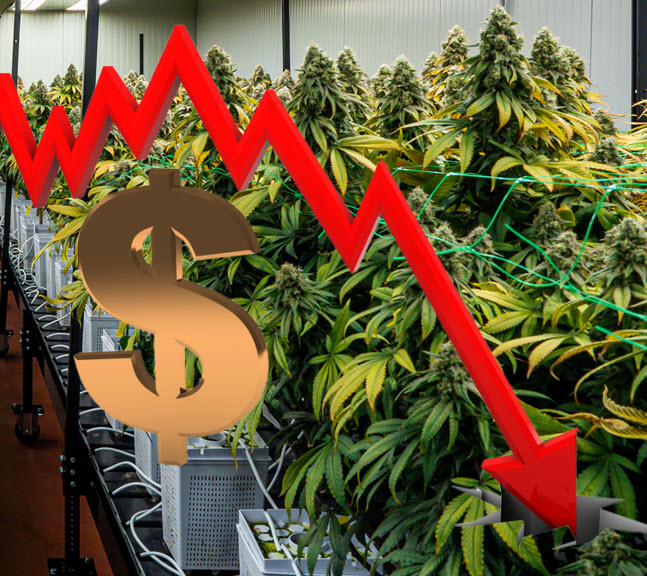
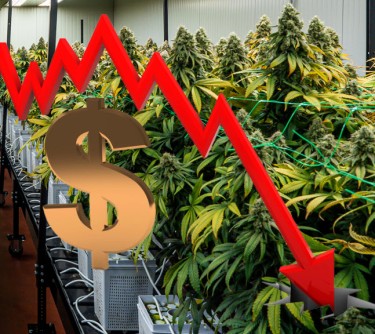
In a significant development for Michigan’s cannabis industry, retail prices have fallen below $80 per ounce as of September 4, 2024. This historic milestone, reflecting a nearly 14.5% decline from the previous year, signals a major shift in market dynamics.
The price drop is driven by increased competition among licensed dispensaries, a growing supply of cannabis products, and the maturation of the market since the legalization of recreational use in 2018. More dispensaries and cultivation facilities have led to competitive pricing and greater product availability, making cannabis more affordable for consumers and potentially boosting legal sales.
As a leader in the Midwest’s cannabis landscape, Michigan’s regulatory framework supports both medical and recreational markets, generating significant tax revenue and job opportunities. As the industry evolves, stakeholders must navigate challenges and capitalize on emerging opportunities.
Factors Behind the Price Drop
The surge in the number of licensed dispensaries in Michigan since the legalization of recreational cannabis in 2018, coupled with the expansion of cultivation facilities, has led to a significant increase in the supply and availability of cannabis products. With more dispensaries offering a wider variety of choices for consumers, the market has become increasingly competitive, with retailers employing pricing strategies to attract customers. This growth in the number of dispensaries and cultivation facilities has enabled dispensaries to offer lower prices to consumers, making cannabis more accessible and affordable.
As the cannabis market matures, both producers and retailers have optimized their operations, leading to reduced costs that are often passed on to consumers. Enhanced cultivation techniques and economies of scale have played a crucial role in lowering production expenses, allowing businesses to improve efficiency and increase output. This combination of operational optimization and cost reduction not only benefits producers and retailers but also makes cannabis products more affordable and accessible for consumers, fostering a healthier and more competitive market environment.
The market has become oversaturated with cannabis products, particularly following significant outdoor harvests. This oversupply has led to a decrease in prices as producers and retailers compete to sell excess inventory.
Michigan currently has no statewide cap on the number of cannabis business licenses, resulting in explosive growth in both supply and demand. This unrestricted licensing has intensified competition among businesses, driving prices downward as they vie for market share.
Implications for Consumers and the Industry
The recent drop in cannabis prices has made the product more affordable for a broader segment of the population, enabling consumers to access quality cannabis without financial strain. This increased affordability not only allows more individuals to enjoy legal cannabis but also promotes responsible use and consumption, as people are more likely to make informed choices when quality products are within reach. By removing financial barriers, the industry is fostering a healthier relationship with cannabis among consumers, contributing to a more informed and responsible market.
The potential boost in sales volume is another significant implication of the lower cannabis prices in Michigan. As the cost of cannabis becomes more affordable, more consumers are likely to enter the market, leading to an increase in overall sales. Dispensaries may experience higher foot traffic as a result of this increased interest in cannabis products, directly benefiting from the lower prices. This influx of new consumers and higher sales volume could further solidify the industry’s growth and sustainability in the state, as businesses capitalize on the greater demand for their products.
The competitive pricing of legal cannabis products in Michigan has the potential to curb illegal sales by making regulated options more attractive to consumers. As the cost of legal cannabis becomes more affordable and accessible, individuals may be more inclined to purchase from licensed dispensaries rather than the black market. This shift towards regulated products not only supports the legal industry but also enhances public safety and quality assurance. By choosing legal cannabis, consumers can be confident in the safety, purity, and potency of the products they purchase, reducing the risks associated with unregulated, illicit markets. As more consumers opt for legal cannabis due to the competitive pricing, the state can expect to see a decline in illegal sales and an improvement in overall public health and safety.
Michigan’s Cannabis Landscape
Since the legalization of recreational cannabis in Michigan, the state has become a pioneer in cannabis reform within the Midwest. With a comprehensive regulatory framework in place, Michigan supports both medical and recreational markets, fostering a thriving industry that has generated significant tax revenue and job opportunities.
The cannabis industry in Michigan has significantly contributed millions in tax revenue, which is allocated to vital areas such as education, infrastructure, and public health initiatives. Additionally, the industry’s growth has led to job creation across cultivation, distribution, and retail sectors, providing numerous employment opportunities for residents. This dual impact not only supports the state’s economy but also enhances community well-being through improved public services and increased job availability.-
As cannabis prices continue to decrease in Michigan, making the products more accessible to a wider consumer base, there is a growing need for comprehensive consumer education. Dispensaries are increasingly taking on the responsibility of educating their customers on responsible use, product selection, and the effects of various cannabis strains. By offering workshops and informational resources, dispensaries aim to help consumers make informed choices and develop a deeper understanding of the products they consume. This proactive approach to consumer education not only promotes responsible use but also fosters a more informed and engaged cannabis community in the state.
Conclusion
The decline in cannabis prices to below $80 per ounce is a significant development for Michigan, highlighting the success of Its regulatory framework and the positive impact on consumers. As the market matures, stakeholders will need to remain vigilant in addressing challenges while capitalizing on the opportunities presented by this dynamic industry.
MICHIGAN CANNABIS PRICES PLUMMET, READ ON…
MICHIGAN CANNABIS FLOWER PRICES DROP BELOW $122, IS $80 NEXT?
Cannabis News
Loper Comes for the DEA. Will it Matter, Though?
Published
1 day agoon
September 6, 2024By
admin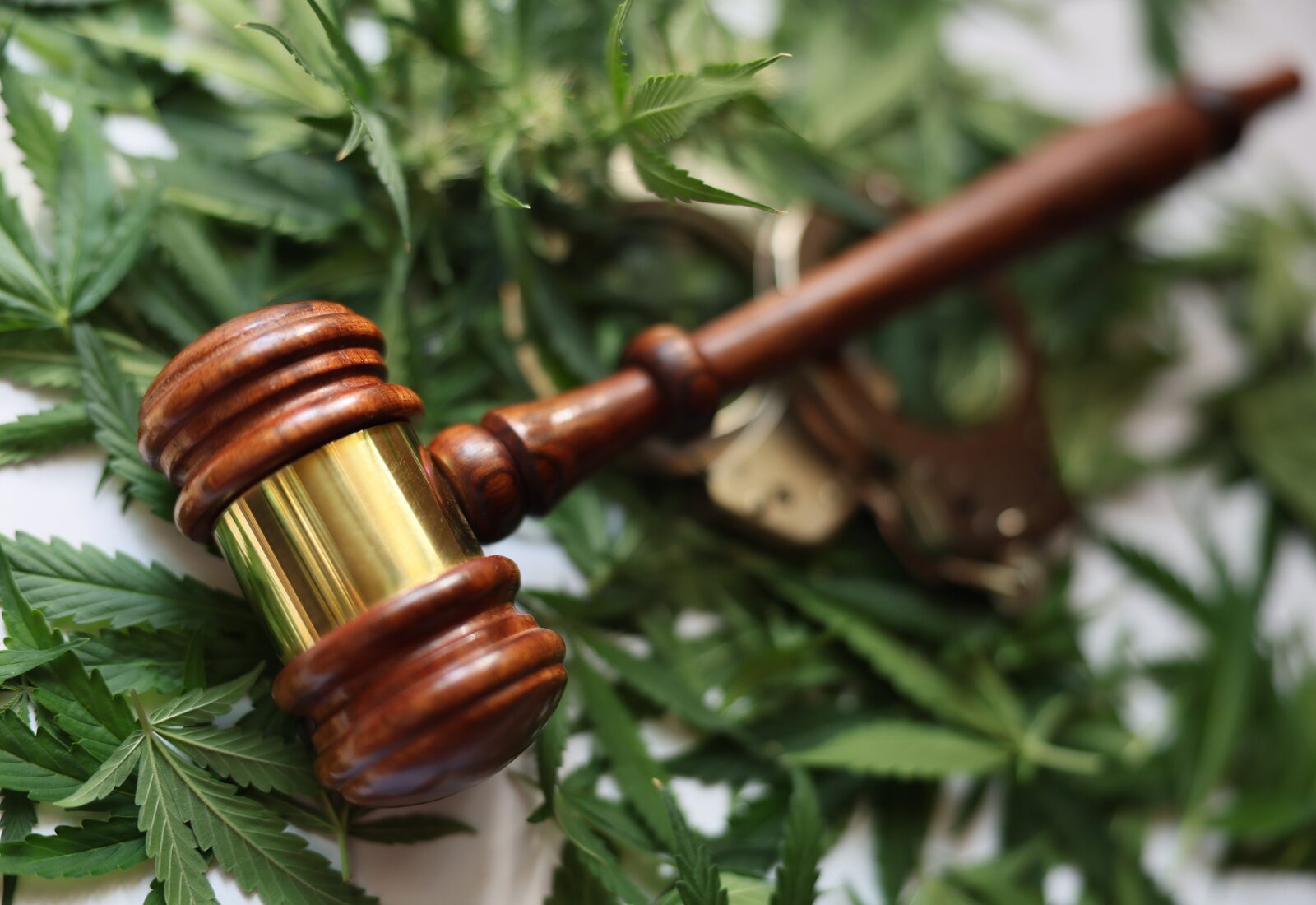
Earlier this week, the federal Fourth Circuit Court of Appeals, in a case entitled Anderson v. Diamondback Investment Group, LLC, handed the DEA a big loss when it comes to hemp – at least for now. In Anderson, the court held that DEA’s interpretation that a host of hemp-derived products were illegal was essentially wrong. Today I want to talk about why Anderson is – and isn’t really – important.
Anderson, as I wrote more than a month ago, was based in relevant part on Loper Bright Enterprises v. Raimondo, a 2024 US Supreme Court decision. Here’s what I said then:
Loper ended what’s often referred to as “Chevron deference.” To vastly oversimplify, Chevron deference required federal courts to defer to reasonable agency interpretations of ambiguous statutes, even if courts did not agree with those interpretations. With Chevron dead, courts will not be required to defer to agencies and courts can decide, on their own, whether an agency’s interpretation was within its statutory authority.
Ever since Loper was decided, there have been a million different theories on how it could affect the cannabis and hemp industries. [For the record, I agree with folks like Shane Pennington who argue that Loper will not affect rescheduling.]
When it comes to hemp though, Loper may in theory have more of an impact, as my colleague, Vince Sliwoski, argued prior to Loper‘s publication. That’s because the DEA routinely issues what amount to opinion letters as to whether this or that cannabinoid is or is not a schedule I narcotic. Under Loper, if there were any statutory ambiguity, the DEA’s interpretation would no longer be given deference. That’s not to say that the DEA might not prevail, but it means the deck would be less stacked in DEA’s favor.
And that is essentially what happened in Anderson. Without getting into the factual weeds of the case, an employee had been terminated after drug tests allegedly showed marijuana use. She sued, in part claiming that she used legal hemp-derived products. The court ultimately held that she had failed to provide they were legal because she did not introduce sufficient evidence that the hemp products had less than 0.3% delta-9 THC.
However, for purposes of this post, the important part of the Anderson decision was its discussion of the 2018 Farm Bill and DEA’s interpretations of the legality of various cannabinoids under that law. One specific cannabinoid that the court analyzed was THC-O, which does not occur naturally but is created from hemp derivatives.
For years, there has been a heated debate as to whether hemp-derived products like delta-8 THC are considered “hemp” under the 2018 Farm Bill. The debate centers around whether these products are “synthetic” because they are derived from other cannabinoids. This is important because DEA considers synthetic cannabinoids to be controlled substances.
A few years ago, in AK Futures LLC v. Boyd Street Distro, LLC, the Ninth Circuit Court of Appeals addressed the issue (albeit in a much different context), and held that delta-8 THC products derived from hemp with less than 0.3% THC were legal under the 2018 Farm Bill.
Importantly, Anderson found AK Futures persuasive, holding:
“we think the Ninth Circuit’s interpretation of the 2018 Farm Act is the better of the two. And we’re free to make that determination ourselves, despite a contrary interpretation from the DEA, because we agree with the Ninth Circuit that [the 2018 Farm Bill’s definition of hemp] is unambiguous . . ., and because even if it were ambiguous, we needn’t defer to the agency’s interpretation [as a result of the Loper decision].”
Crucially, Anderson held that “rather than originating from organic matter—like the hemp-derived cannabinoids at issue—, synthetic cannabinoids are just that: compounds manufactured entirely out of synthetic materials.”
To summarize all of this, according to the Fourth Circuit, if a product is derived from hemp and does not contain more than 0.3% THC, it is legal. This includes things pulled directly from the plant, or things like delta-8 THC which may take other processes to produce. But, any cannabinoid derived purely from synthetic materials would not be considered “hemp” under the 2018 Farm Bill.
All of that said, Anderson probably won’t matter much. As I noted in in July:
[A]ll of [the discussion about Loper] is almost certainly academic – at least if Congress passes the Farm Bill with proposed amendments that would ban intoxicating hemp products. If that happens, the DEA won’t need to opine on the legality of many (if not most or all) intoxicating hemp products. The law would have already changed to prohibit them expressly.
But what happens if the upcoming Farm Bill doesn’t contain bans on intoxicating hemp products? Things will almost certainly not end there. The FDA, which has been hostile to many hemp products since the day the 2018 Farm Bill was passed, could simply claim products are adulterated or misbranded and seek to pull them from the market. It does this with kratom, which is an unscheduled plant, and there’s no reason why it could not do it here (subject again to FDA having to prove its case in a post-Loper court challenge).
And, as I noted, federal law isn’t the only thing that matters:
Things are also not looking great for intoxicating hemp products at the state and local levels. The State of Virginia, for example, just levied nearly $11 million in fines against more than 300 retailers allegedly selling state-prohibited intoxicating hemp products. Out west, the Colorado attorney general sued a business in June for allegedly selling super-high THC products marketed as federally legal hemp.
We also assume that there is a lot of local enforcement actions that go under the radar – things like state or local public health officials pulling products from shelves or warning stores. That can be harder to track if for no other reason than it doesn’t often make the news. We also assume that a lot of the reports concerning enforcement against alleged illegal marijuana stores or operators, including in places like New York, may miss the legal nuances between intoxicating hemp products and illegal cannabis products.
In sum, the intoxicating cannabinoid industry just won the battle with DEA, but it’s probably not going to win the war.

Navigating Product Options at the Dispensary

How Long Do Delta 8 Gummies Take To Kick In?

I Ate Magic Mushrooms and Nothing Else for 10 Straight Days – Finding My Soul and Eternal Love

CBD Mushroom Tea – GanjaVacations Jamaica

The US Suddenly Has Two Pro-Marijuana Legalization Candidates, But Only One is Believable 60 Days Before the Election

What State Just Dropped Below $80 an Ounce for Legal Cannabis? A. Florida B. Michigan C. California D. New York

The Best Refreshing Cocktails

Key Tips For Consuming Marijuana At The Local Fair

Loper Comes for the DEA. Will it Matter, Though?

essential elements create suitable germination environment

Distressed Cannabis Business Takeaways – Canna Law Blog™

United States: Alex Malyshev And Melinda Fellner Discuss The Intersection Of Tax And Cannabis In New Video Series – Part VI: Licensing (Video)

What you Need to Know

Drug Testing for Marijuana – The Joint Blog

Cannabis, alcohol firm SNDL loses CA$372.4 million in 2022

NCIA Write About Their Equity Scholarship Program

It has been a wild news week – here’s how CBD and weed can help you relax

A new April 20 cannabis contest includes a $40,000 purse

City Of Oakland Issues RFP For Employee Training Programs

UArizona launches online cannabis compliance online course
Trending
-

 Cannabis News1 year ago
Cannabis News1 year agoDistressed Cannabis Business Takeaways – Canna Law Blog™
-

 One-Hit Wonders1 year ago
One-Hit Wonders1 year agoUnited States: Alex Malyshev And Melinda Fellner Discuss The Intersection Of Tax And Cannabis In New Video Series – Part VI: Licensing (Video)
-

 Cannabis 1012 years ago
Cannabis 1012 years agoWhat you Need to Know
-

 drug testing9 months ago
drug testing9 months agoDrug Testing for Marijuana – The Joint Blog
-

 Marijuana Business Daily1 year ago
Marijuana Business Daily1 year agoCannabis, alcohol firm SNDL loses CA$372.4 million in 2022
-

 Education2 years ago
Education2 years agoNCIA Write About Their Equity Scholarship Program
-

 Cannabis1 year ago
Cannabis1 year agoIt has been a wild news week – here’s how CBD and weed can help you relax
-

 California1 year ago
California1 year agoA new April 20 cannabis contest includes a $40,000 purse




